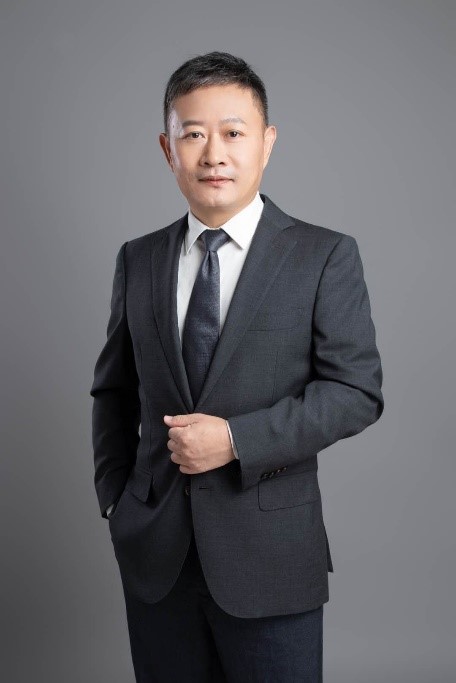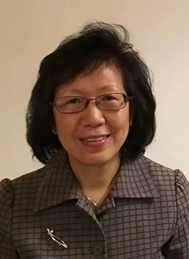1. Theme
Artificial Intelligence-Enabled Innovation in Knowledge Building Research and Practice
2. Language
Bilingual (Chinese and English)
3. Abstract
With the advent of the AI era, traditional educational methods are facing significant challenges. The knowledge-receptive learning catered to the industrial age must evolve into inquiry and discovery-based learning. The aim of education is to cultivate and develop students’ core competencies, including critical thinking, innovative thinking, problem-solving skills, communication, and collaboration, to meet the fundamental requirements of talent cultivation in the AI age. The teaching paradigm of knowledge building (KB), which mainly aims to cultivate and develop students’ creativity, will become an important paradigm for adapting to educational practices in the intelligent era. Knowledge building creates a knowledge-creating community through the Knowledge Forum. Students continuously improve their ideas through collective interaction, creating knowledge through a process similar to a scientists’ practices, which is highly consistent with the requirements of talent cultivation in the AI era.
The AI-Enabled Innovation in Knowledge Building Research and Practice workshop will explore how to better achieve innovative processes of knowledge building in the context of AI. It will focus on AI’s contributions to the theoretical system of knowledge building, hot research topics, practical processes of knowledge building, innovative design and assessment, providing an opportunity for researchers and practitioners in the field to exchange research findings and experiences.
4. Call for Papers
Format
The workshop will last for 3 hours, emphasizing small scale, in-depth discussion, and multi-perspective exchange to help participants improve the quality of their papers and research level. The number of papers will be limited to no more than 10, and authors will have 15-20 minutes to share core research findings, existing problems, and comments for further research.
Topics
This workshop focuses on AI-enabled innovative practice in knowledge building, and topics for submission include (but are not limited to):
- AI-enabled innovation in teaching and learning;
- Current status, challenges, and development of knowledge building research;
-AI-supported practices in knowledge building;
-Metaspace in knowledge building and teacher development;
-Knowledge building and student development;
-Knowledge building and learning analytics;
-Diverse assessments in knowledge building;
-Data analysis and feedback in knowledge building practices;
-Classroom dialogue analysis in knowledge building.
Requirements
Authors are welcome to submit high-quality theoretical explorations and empirical research papers. Papers are categorized as full papers (up to 8 pages) and short papers (up to 4 pages). For theoretical research papers, focus on cutting-edge issues in knowledge building, clarify theoretical bases, core concepts, and conceptual frameworks, and propose testable theoretical hypotheses. For empirical research papers, submissions will be reviewed based on research background, objectives and questions, methods and design, results and conclusions, significance and limitations.
Important Dates for the Workshop
-Submission deadline: March 25, 2024
-Notification of results: April 8, 2024
-Final paper submission deadline: April 22, 2024
-Registration deadline: April 30, 2024 (Early bird registration deadline: April 23, 2024)
How to Submit
Please submit papers to the following email: fengxq@sustech.edu.cn, with the subject format “GCCCE2024 Workshop Paper + Name + Institution + Contact Phone + Email Address”. Each paper must have one author registered for the conference to be presented. The paper format should follow the conference paper format, and templates can be obtained from the following addresses:
5. Chairs
Workshop Chair
Jianhua Zhao, Southern University of Science and Technology, zhaojh@sustech.edu.cn
Vice Director of the Center for Future Education Research, Director of the AI Education Research Center, Professor, and Ph.D. supervisor at Southern University of Science and Technology. He is a senior expert of the UNESCO Higher Education Innovation Center, a member of the expert advisory group for international online teaching platforms and course construction of the Ministry of Education, Vice Chairman of the Learning Science Research Branch of the China Higher Education Society, Executive Director of the Future Education Professional Committee of the China Education Development Strategy Society, an Executive Committee Member of the Global Chinese Society for Computers in Education (GCSCE), a member of the Guiding Committee for Online Open Courses in Guangdong Universities, Vice Chairman of the Educational Technology Professional Committee of the Guangdong Higher Education Society, Executive Director of the Shenzhen Educational Society, and Vice Chairman of the Educational Informatization and AI Professional Committee of the Shenzhen Educational Society. His main research areas include AI education, future education, technology-supported teaching and learning, learning science and technology, professional development of teachers, and more.

Workshop Vice Chair
Carol K.K. Chan, The University of Hong Kong, ckkchan@hku.hk
Professor Carol K.K. Chan is a faculty member at the Faculty of Education at the University of Hong Kong. She has devoted many years to teaching and researching in the field of learning sciences. Her research focuses on how people learn, with main research directions including learning, cognition and instruction; information technology and knowledge building; and the learning patterns of Chinese students. Professor Chan’s academic achievements are highly recognized by local and international scholars. She currently serves as the Associate Editor for the academic journal International Journal of Computer-Supported Collaborative Learning and has contributed to the editing of The International Handbook of Collaborative Learning. Her papers have been published in prestigious academic journals, including the American Educational Research Journal, Journal of the Learning Sciences, and Computers & Education.

6. Program Committee
Yuqin Yang, Central China Normal University
Shaoming Chai, South China Normal University
Yinjian Jiang, Guangdong University of Technology
Jing Leng, East China Normal University
Jing Kong, Foshan University of Science and Technology
Xueqi Feng, Southern University of Science and Technology
Jingmin Miao, Guangzhou University
Shaowen Wu, Shenzhen Songhe Primary School

